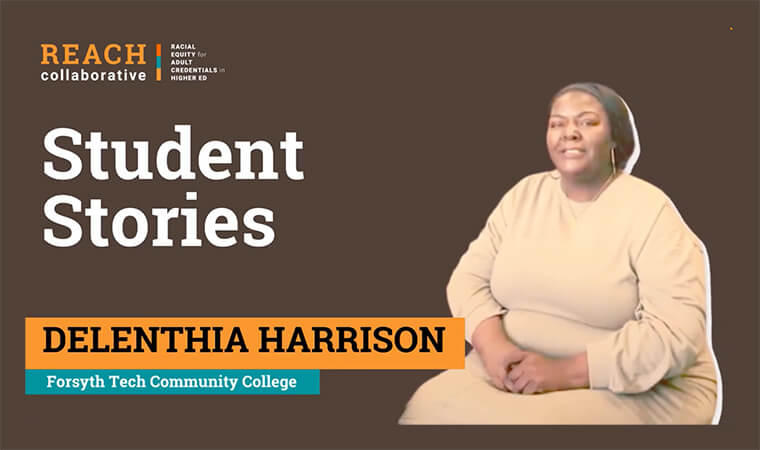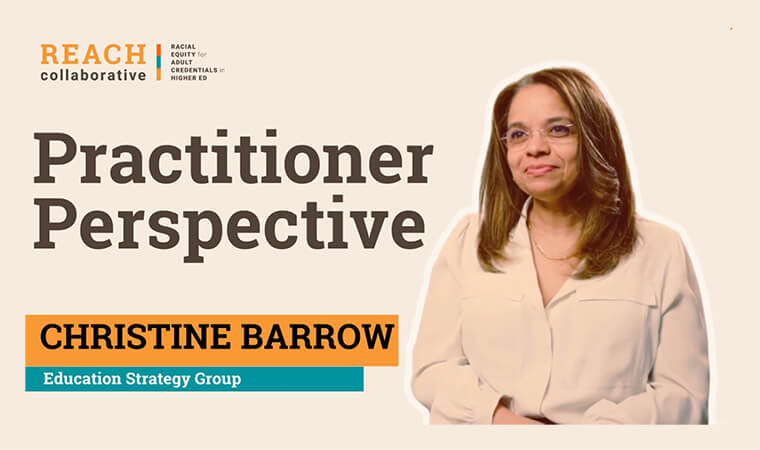Delenthia Harrison
Forsyth Technical Community College

Too often, life gets in the way of adult students, forcing them to delay or abandon their studies. On top of losing valuable time and money, they have nothing to show for their hard work. By stacking short-term credentials in a sequence that leads to an associate degree, students can start to make faster academic and career gains, allowing them to apply for higher-wage jobs more quickly while continuing to grow their skills and work toward their larger goals. To be most effective, these pathways should be built to progress toward high-wage, high-demand careers available in the same region as the college. Their speed and stackability are a necessary and practical response to the expensive stops and restarts adult learners of color have faced for far too long.
Hear from adult learners of color who are in these pathways and the leaders and staff supporting them. Hear more practitioner perspectives »
Forsyth Technical Community College

Virginia's Community Colleges

Education Strategy Group

Watch a recorded presentation from Nan Travers, Ph.D., Director of the Center for Leadership in Credentialing Learning at SUNY Empire State College, on how to recognize and verify learning and integrate credit for that learning into curriculum using a common language of competencies.
Join our email list to stay updated on the latest resources, best practices, and impact stories from REACH states and colleges.

Provide proactive academic and life supports.
Bundled and Sequenced SupportsCreate welcoming learning environments.
Culturally Sustaining Practices